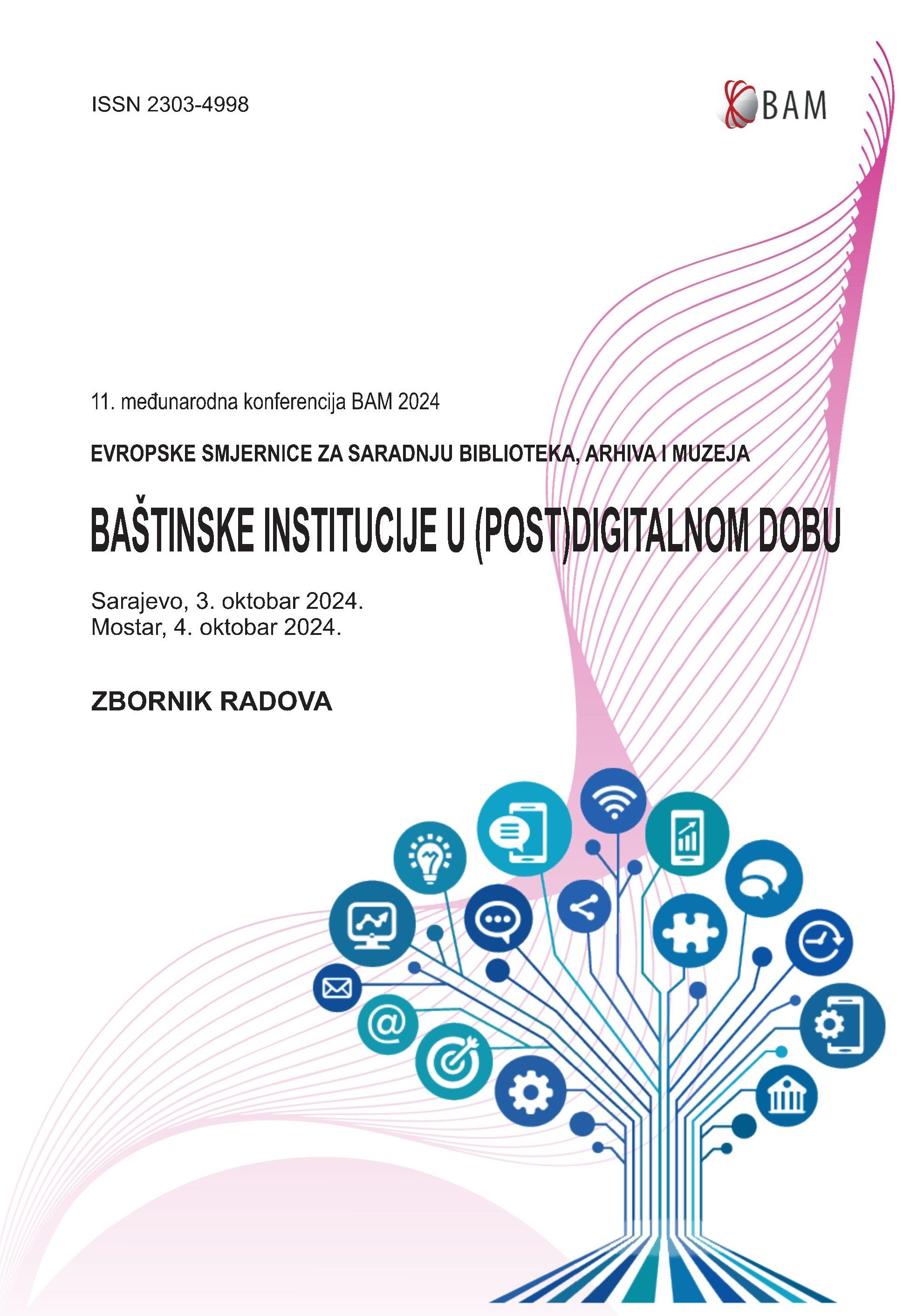Izazovi profesije u tranzicijskom društvu ili revolucija koja jede svoju djecu: kritički osvrt na trend uvođenja digitalnih tehnologija u biblioteke – digitalizacija i automatizacija
Challenges of the Profession in a Transitional Society or a Revolution That Eats Its Own Children: A Critical Review of the Trend of Introducing Digital Technologies Into Libraries – Digitization and Automation
Author(s): Emira KulenovićSubject(s): Library and Information Science, Archiving, Preservation, Library operations and management
Published by: Asocijacija informacijskih stručnjaka – bibliotekara, arhivista i muzeologa
Keywords: libraries; digital technologies; information literacy; computer literacy; digitalization; automatization; technological trends;
Summary/Abstract: Topics that have been dominating in local professional circles for a long time are related to the application of digital technologies to the work of libraries. The most attention is directed to digitization of materials and automatization of services. The digital conditioning of our everyday life is evident and ubiquitous in many spheres of human activity, and heritage institutions are no exception. In librarianship, these processes are related to the improvement of services and operations. Special emphasis is, however, on the promotion and preservation of cultural heritage. Thus, the most often stated goals of digitalization are promotion and preservation of originals, easier manipulation and dissemination of digital content, and adaptation to new technological trends. On the other hand, there is an insistence on the automatization of all segments, from administrative to professional, in order to save time and money and provide new services to users. Although the benefit is indisputable, it would be good to reconsider the motives, practices, as well as the final results of the implementation of these trends in our country, keeping in mind the entire social context. The paper discusses the competence of society for the transition from the analog to the digital age using the example of libraries and user communities. Having in mind an increasing concern of the risks of the dizzying progress of IT technologies by far more organized and wealthy countries – especially when it comes to the uncontrolled development of artificial intelligence and the risk of data loss or misapplication – should force library professionals worldwide to think long-term about the impacts that such processes can produce. In a country that does not have enviable economic and educational indicators, where many segments are not regulated through acts and legislation, where demographic statistics on the level of education and information literacy are devastating almost as are allocations for the development of science and technology, where status of cultural and educational institutions is questionable – it is necessary to provide a different point of view on this problem. Supported by available statistical indicators it is possible to see an objective picture of both sides of the coin.
Journal: Zbornik Radova – Asocijacija informacijskih stručnjaka, bibliotekara, arhivista i muzeologa (BAM)
- Issue Year: 2025
- Issue No: 11
- Page Range: 159-172
- Page Count: 14
- Language: Bosnian

